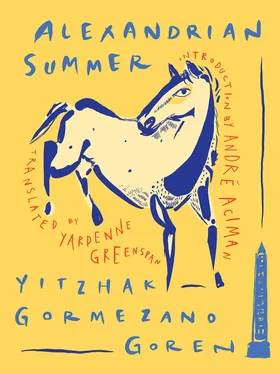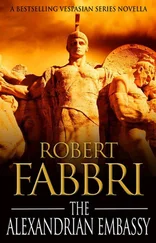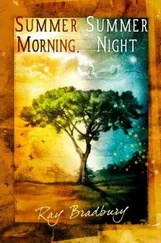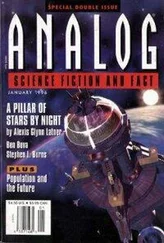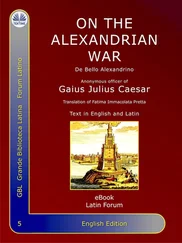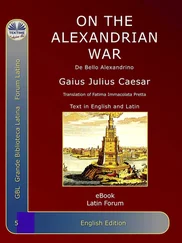Joseph Hamdi-Ali closed his eyes. Some say they remained closed for the whole race, a fact which gave rise to contradictory interpretations. Some saw it as an incriminating sign, others as a virtue. Some argued that he closed his eyes from fear and guilt, while others claimed that had he really done something foolish and unworthy, he would not have been able to help himself from following the events with open eyes to make sure that his scheme bore fruit.
When he opened his eyes, David had already won. The boy was peacocking away, all smiles and pride. His victory was complete.
Complete? Some questioned this.
General confusion led to doubt. The truth was, and almost everyone admitted it, in the middle of the race Al Buraq began acting out of character, strangely, as if he had no intention of reaching the finish line first. Ahmed tried with all his might to control the dazed beast, but when he finally managed to, only a few seconds later, it was already too late. And in spite of this delay, he still came in second. Second! How much contempt is contained in this word! The difference between second and first is the same as the difference between relative and absolute. This fact was etched on the slate of eternity: Esperance came in a head before Al Buraq. A head might as well be an abyss. Desperation and rage rose, swelled, bubbled as if from the depths of a volcano. Something had to be done, right away! Something had to be done, somehow he had to turn back the hands of time. What was wrong with Al Buraq? Did he suddenly fall ill? And if he did, was it spontaneous or … or … it can’t be! But why not? That had to be it. And even if it wasn’t, this was the moment to cry out in protest. A moment longer, and it would be too late.
A hair-raising cry of grief left the wrathful Bedouin’s mouth, and though it stank of bad acting, it still managed to shake up the crowd. Some people revolted against the vulgar act, saw it as losing without dignity. But the majority heard entirely different echoes in this cry. Awhile later, in court, some claimed they heard in that cry the protest of all Egypt, trampled under the feet of strangers. Baseless statements, indeed, and yet they might explain the wave of national chaos that began at the racetrack and submerged the entire beachfront of Alexandria. But let us not get ahead of ourselves.
Ahmed Al-Tal’ooni knew that in spite of the impression made by his theatricalities, the echoes would soon die down if he didn’t make an explicit statement. Now it was time to point an accusing finger. A ridiculous scheme. Nevertheless …
“Someone drugged my Al Buraq!”
After the initial shock, there came a mélange of calls of agreement and calls of derision and scorn. First the louder voices were those rejecting such a capricious, unfounded accusation. It was an easy out, an act of childishness, they said. Anyone losing a competition could claim foul play and ask for a recall. But rationality has nothing to do with reality. Against these voices, a dark, consolidated call formulated, sounding agreement in primitive beats, growing louder until they became a threatening thunder, closing in tight, stifling circles, desperately trying to break through.
Someone sensed the nearing danger and called out to the fallen knight: “Who? Please, tell us, who did this terrible thing?”
Who?
The question echoed in Al-Tal’ooni’s mind. So far he hadn’t given it much thought. Now he had to answer fast, before the impression was dulled. Should he blame his Jewish rival himself? He was about to shout hysterically, Daoud Hamdi-Ali, he’s the one who drugged my horse! But at that moment his gaze fell upon two sharp eyes.
Al-Tal’ooni’s embarrassment only lasted a moment.
Maybe Ahmed saw guilt flickering in the old man’s eyes, or perhaps he saw the reflection of his own slander, or perhaps he merely saw a suitable victim to latch on to. One thing was clear — Al-Tal’ooni’s cry, “That old man … that damned old man … he’s the one who drugged my horse … Allah, avenge me, avenge me, Allah! I have … I have proof that he … he … it was him!”
Joseph Hamdi-Ali heard these things and yet did not hear them. Or perhaps he heard them but they simply didn’t register. People crowded around him. Some of his friends pressed him to respond immediately and harshly to this evil slander. Joseph Hamdi-Ali only smiled his usual smile. That hospitable smile known only to sons of the Levant, that smile of acceptance which welcomes calamity. He shook his head and closed his eyes. He was in his own world. That light anxiety, watered down with awkward glee, which gripped him when he learned of his son’s victory, now gave way to fatalistic serenity. He knew now: his son’s victory was a ruse, granting him a short, deceitful moment of illusion, only to inflict upon him, him and not his son, a blow far worse than any he could previously imagine — slander. This petty betrayal by Al-Tal’ooni. How contemptible, how insulting, for his good name and his professional integrity to be manipulated like toys, passed from hand to hand, each handler staining them further.
And now, with precious moments passing, and Al-Tal’ooni prancing about in an hysterical display, and Joeph Hamdi-Ali seemingly sinking deeper into his own defeat … Suddenly the old Turk pounced with out-stretched arms at the young Arab’s throat.
Luckily, the two were pulled apart. Officer Nawas, Robby’s father’s good friend, arrived within seconds, and a phalanx of police officers came between the foes. They managed, for the time being, to scare away the Arab mob wildly supporting their hero, whose throat emitted gurgling sounds from the steel grip of the Jew’s fingers.
“ Maut al yahud! Death to the Jews!” the calls came.
“ Sahyuni! Sahyuni! ” others shouted. “Zionist!”—that classic opening for riots and protests, for unloading deep, bitter disappointment.
Nawas and his colleagues tried to stem the tide by shouting back curses of their own. “ Klab ibn’l klab ,” they shouted, “Dogs sons of dogs,” and brandished their wooden clubs. But they were too few, and the crowd’s rage rose with each passing moment. Later on, after the Officers’ Revolution led by Muhammad Naguib and Gamal Abdel Nasser, it was discovered that on that day all sorts of factors incited the crowd, factors with different and even contradicting interests, nevertheless united in their hatred of any overprivileged stranger, and first and fore-most, of the British administration. There were representatives of the Muslim Brotherhood, fanatical and violent, and then there were a handful of left-wing students with socialist inclinations, those who within the year would become the most enthusiastic supporters of the Free Officers Movement. Any reason was good enough for an anti-British and anti-Zionist demonstration, for a spontaneous expression of the resentment felt by Egyptians, who saw themselves as having been cheated for centuries.
Nawas managed to sneak the Hamdi-Alis out of the track, but the mob was now on the streets, unloading its anguish in a sort of carnival that comprised more noise than actual violence. Nevertheless, these protests melted even the bravest hearts, and certainly Grandma’s heart, which had never been too brave. As the protest spilled into the streets, she was on the tram with her friend Renée Marika, on their way home from a visit to Grandma’s sister, Robby’s rich great-aunt, who lived in a luxury apartment in the Cleopatra neighborhood. That day they hadn’t gone to the race, since Robby’s parents hadn’t either. The Ford offices in Alexandria, where Robby’s father worked, were about to relocate to a modern, expanded complex in Smooha neighborhood, and on that stifling Sunday, employees and their families were invited to a reception to inaugurate the facilities. Robby was there too, proud and happy when his father showed him his new office. Shortly thereafter, his father quit his job as a result of conflict with his supervisor, a Brit with clear anti-Semitic tendencies. In the winter of 1951, the family left the shores of Alexandria by boat, perhaps forever.
Читать дальше
